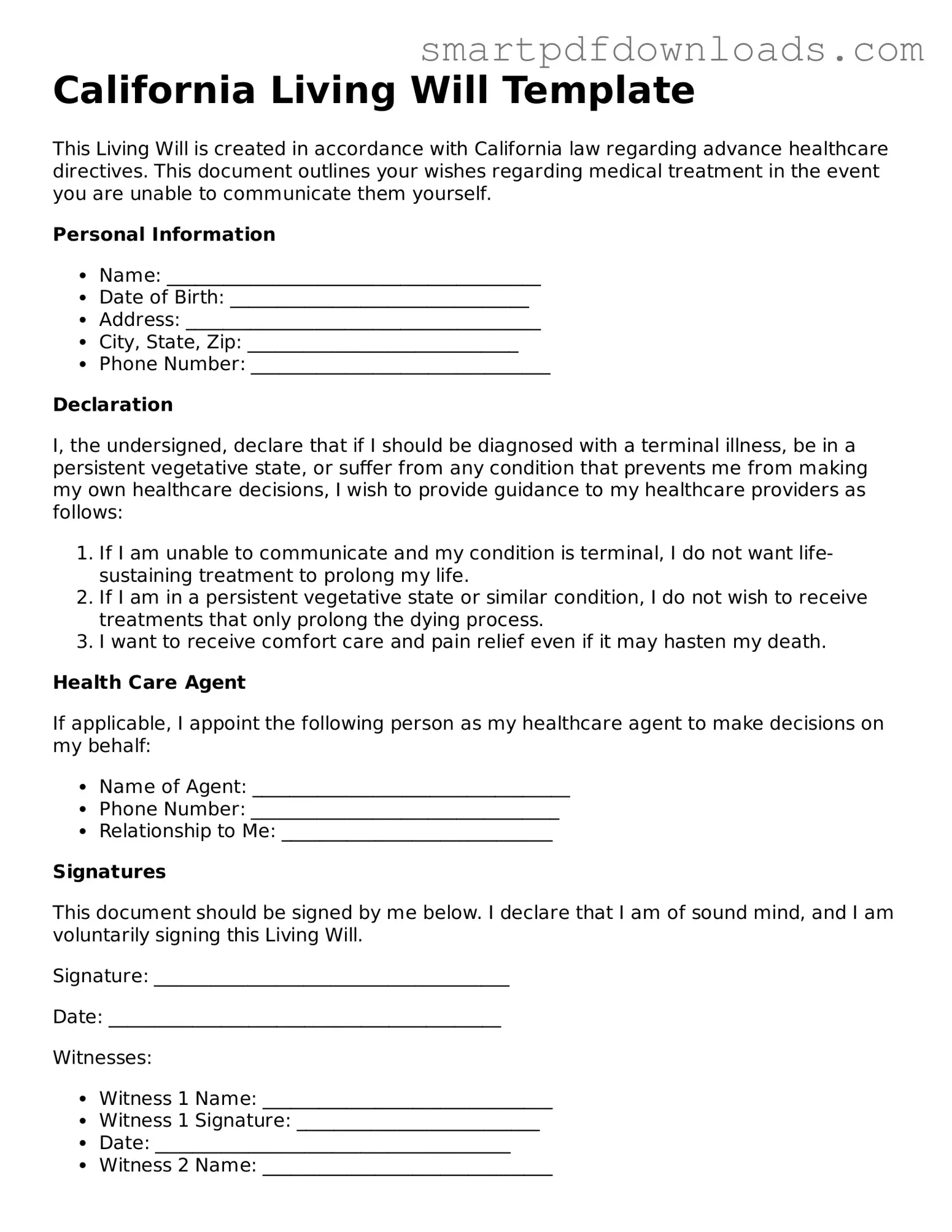Legal Living Will Form for the State of California
A California Living Will form is a legal document that outlines an individual's preferences for medical treatment in the event they become unable to communicate their wishes. This form allows people to express their desires regarding life-sustaining measures and other medical interventions. Understanding this document is essential for ensuring that your healthcare choices are honored when you cannot speak for yourself.
Edit Living Will Online

Legal Living Will Form for the State of California
Edit Living Will Online

Edit Living Will Online
or
⇓ PDF File
Finish the form and move on
Edit Living Will online fast, without printing.